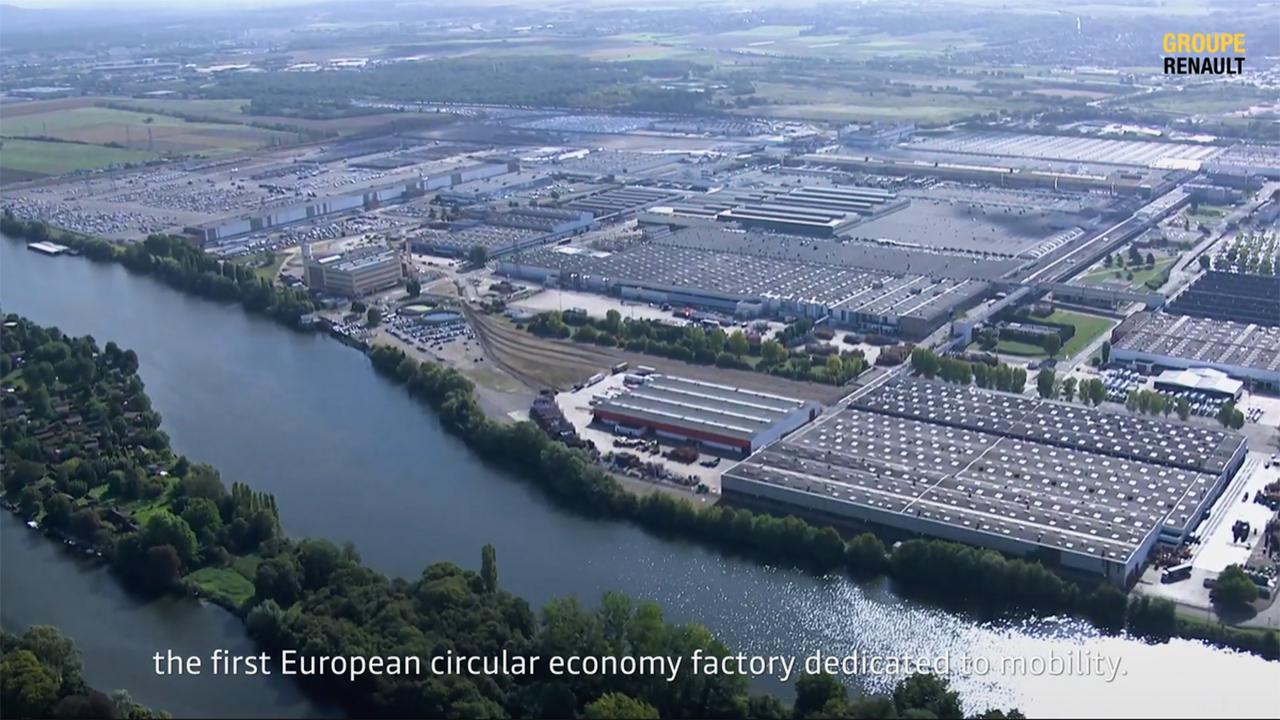Re-Factory: Renault dedicates an entire production site to retrofit old vehicles, including towards the electric
Source: HW Upgrade added 28th Nov 2020
‘Re-Factory’: one of Renault’s production plants, in this case the one in Flins-sur-Seine, not very far from Paris, will be dedicated entirely to modernization procedures of existing vehicles, including retrofit operations and conversion into electric vehicles, with a view to the circular economy
by Roberto Colombo published 27 November 2020 , at 19: 21 in the Technology channel
Renault
The arrival d i Luca de Meo driving Renault as CEO gave literally a shock to the transalpine producer, who has decided to push even more on the accelerator in the process of overall reduction of the environmental footprint and carbon dioxide emissions. The keyword of the recent announcement is’ Re-Factory ‘: in practice one of Renault’s production plants, in this case the one in Flins-sur-Seine, not very far from Paris, will be dedicated entirely to procedures modernization of existing vehicles , including operations i retrofits and transformation into electric vehicles, with a view to the circular economy .
The move has a dual purpose: on the one hand, it allows Renault to move the productions currently active in Flins (Renault Zoe and Nissan Micra) to the Douai plants , concentrating the production of electric vehicles in that site, on the other hand to do so without having to announce the closure of a factory.
Re-Factory to extend the useful life of vehicles
‘ Extend the useful life of vehicles ‘this is the mission of the project, guided by the awareness that the car market has changed, with a sudden acceleration also given by the global situation current. The second-hand market has literally exploded and in addition, many consumers are moving away from the model of the owned car , focusing more on models in which the car becomes a mobility service .
In the coming months the production site will undergo the appropriate transformations and starting from 21 September 2021 aims to recondition 45. 00 0 second hand vehicles per year . In particular, the focus will be on retrofit operations to convert vehicles with pure combustion engines into options with a lower environmental impact , from hybrid to electric.
The initiative will be aimed primarily at large professional customers, such as large corporate fleets, rental services and car sharin g, but it should also allow the renewal of private vehicles. In this sense Renault will push hard on the adoption of 3D printing and other technologies of additive manufacturing , to provide customized pieces for collectors and vintage cars.
Not only that, the site aims to become even more a center of expertise for electric car battery repair : Renault aims to achieve a capacity of 20. 00 0 batteries repaired per year by 2030. The reconditioned batteries can then be dedicated to projects outside of mobility, such as energy storage (and subsequent release) at times when production from renewable sources is not balanced by consumption and vice versa. When they are no longer considered efficient enough for a car, batteries still retain efficiency and capacity for less intensive applications. Between 2021 and 2030 Renault aims to sell refurbished batteries for the equivalent of 200 MWh .
Not only retrofit, the Flins plant will also become a center for the dismantling of end-of-life vehicles, allowing everything possible to be recovered and recycled. The project also has other interesting implications. From 2012 to today Renault, through Indra Network, has collected, reconditioned and put back on the market 400. 00 0 spare parts : The Flins site will become a very important source of second hand spare parts.
